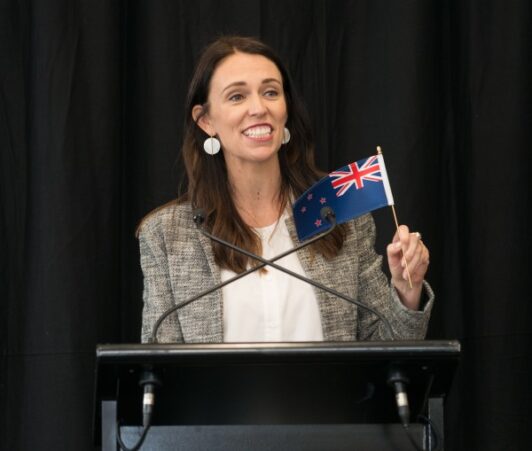In 2020, New Zealand had great success in protecting its people from Covid-19, a naturally-caused infection, but in a seeming paradox it opened the door to euthanasia, and further liberalised its abortion law, both of which allow for the deliberate killing of human beings.
New Zealand was the first country to put euthanasia to a referendum and, in October 2020, a two-to-one majority of voters confirmed the End-of-Life Choice Act approved the previous year by the Parliament.
Now euthanasia is permitted for those who have a terminal illness and are expected to live no longer than six months. Very few countries in the world allow this.
The Abortion Legislation Act, which came into effect in March 2020, decriminalised abortion in New Zealand. It is one of the most extreme laws in the world.
It permits abortion for any reason up to 20 weeks (around 90pc take place before 12 weeks), and now terminations will also be permitted after 20-weeks gestation if it is “necessary to save the life of the woman or girl or to prevent serious permanent injury to her physical or mental health”.
This might seem a limitation, but in Britain almost all of its 200,000 abortions per annum are conducted on grounds like this. In practice, it is abortion-on-demand.
Pro-life groups say the new law amounts to late-term abortion-on-demand, as there is no limit to what might be deemed to cause permanent injury to the “mental health” of the mother.
The New Zealand legislators also refused to introduce an explicit ban on sex-selective abortion and there is no legal requirement to give pain relief to the foetus, even after 20 weeks. The same happened in Ireland when pro-life deputies introduced similar amendments.
In the previous legislation, a termination could only be performed by a doctor while now any qualified health practitioner can perform an abortion in New Zealand. The absence of a doctor increases the risk for the woman in case of a complication.
A recent article from University College Cork researchers highlighted that in Ireland conflicts have emerged within medical teams when considering the practice of feticide as an alternative to induced delivery. Feticide has been described as “brutal”, “awful”, and “emotionally difficult” by those doctors. The alternative is an induced delivery but there is a possibility that the baby survives, raising the question of if and what kind of care the newborn is entitled to.
The study says: “This generated concern for the Fetal Medicine Specialists as they are ‘unclear as to who will look after these babies’ if a baby is born alive following termination of pregnancy by induction of labour and without feticide, resulting in them ‘begging people to help’ them in providing palliative care” … Some participants expressed ‘friction’ with neonatologists because of an expectation for ‘universal feticide’ to ensure that no baby was born alive. … some expressed that feticide needed to be mandatory for late gestations because it was in the best interest of the baby to not be born alive.” (p. 5)
To avoid such conflicts in New Zealand, the Minister of Health has stated in a document setting the “standards for abortion services” that “feticide should be part of the medical abortion process after 22 weeks. Should a woman not consent to feticide, the New Zealand Maternal Fetal Maternity Network considers the abortion should not go ahead, because induction of labour where there is the possibility of neonatal survival is not an abortion.” (p. 19)
This document, following the new legislation, makes feticide the obligatory method of abortion after 22 weeks so that no aborted baby has a chance to be born alive. This is the morbid logic of abortion: no one should survive.
The New Zealand law also introduced censorship zones around abortion facilities, which are quite rare in the world.
Thankfully this provision has no practical consequences as some deputies voted by accident a free -speech amendment that deleted the parts of the bill that would give legal effect to the censorship zones. This happened due by some misunderstanding but the vote, once cast, was not repeated. While the definition of “safe zones” remains in the legislation, it is legally redundant as the effects have been removed from the Bill.
What is happening in New Zealand shows that while a country can go to extraordinary lengths to protect its people from death by natural causes, it will also go to great lengths to facilitate the choice of killing the unborn, the old and the infirm by deliberate means.
To put it another way, death by natural causes is considered a greater evil than death-by-deliberate choice.

Nessun commento:
Posta un commento